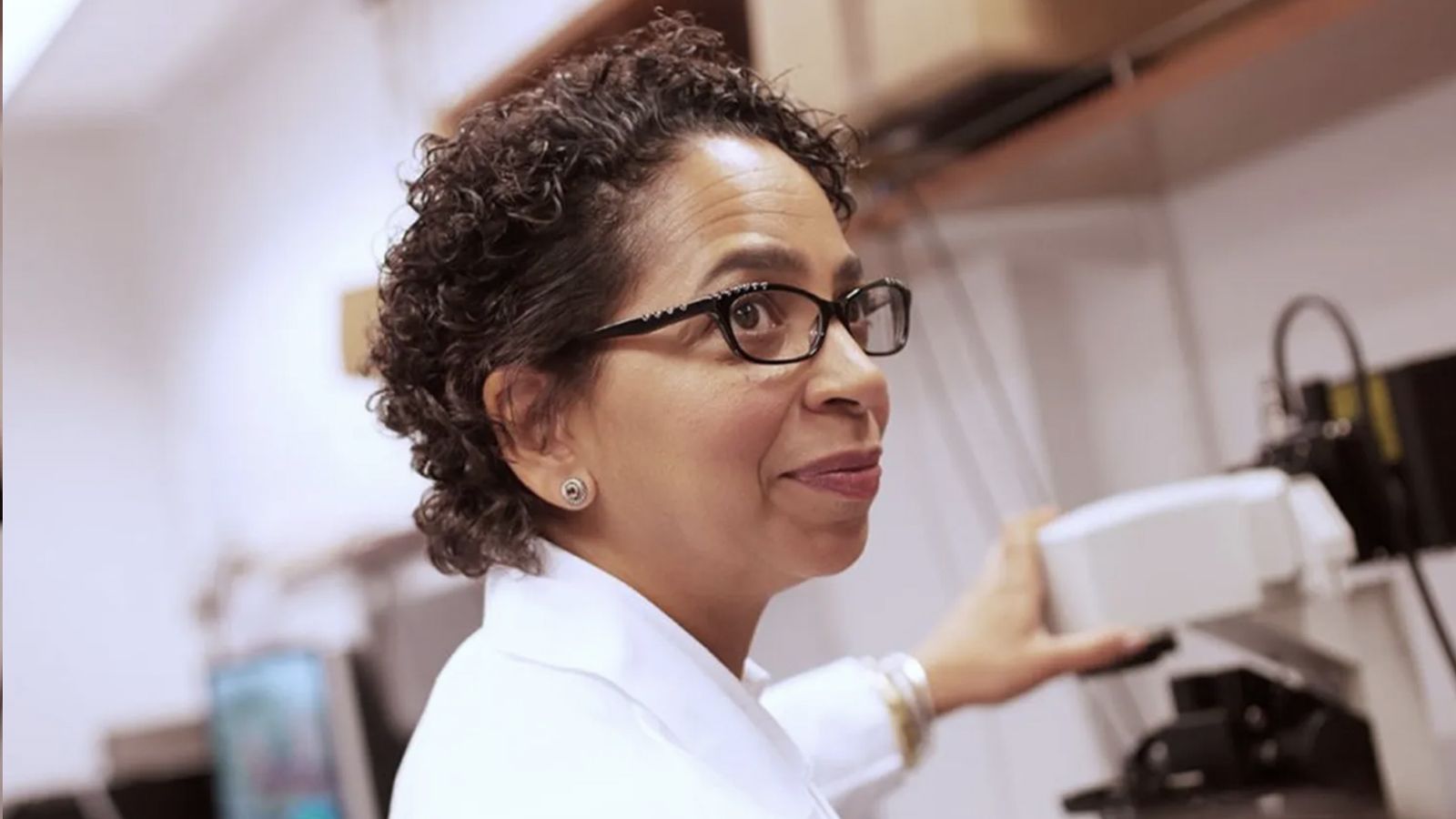It’s their “platinum anniversary.”
Hunter College cancer researcher Dr. Jill Bargonetti and her team are celebrating a new grant and a milestone: The Breast Cancer Research Foundation (BCRF), the nation’s premier nonprofit provider of funding for a cure, is giving the Bargonetti lab $225,000 this year, for a total of $1.5 million in grants over 20 years.
“I want to thank BRCF for its incredible generosity and longevity in supporting our lab at Hunter,” Dr. Bargonetti, the Hesselbach Professor of Biological Sciences, said. “The foundation’s stalwart support has enabled us to perform cutting-edge research to advance understanding of ways to better target breast cancers, while also training a generation of first-rank young scientists.”
The foundation has a special relationship with Hunter College. It was founded in 1993 by Hunter graduate and Estée Lauder executive Evelyn H. Lauder HCHS ’54, HC ’58, who died of cancer in 2011 at age 75. Lauder, who championed Hunter as the engine of the American Dream, fervently wanted it to be part of the cure. The foundation invited Dr. Bargonetti to apply in 2004, evaluated the research plan, and generously funded the proposal in 2005 — making Hunter the only public college without a hospital attached to it to receive such funding.
“Research is the key to transforming treatment options and ending breast cancer as a life-threatening disease. True progress comes from investing in research that confronts breast cancer from every angle,” said BCRF Chief Scientific Officer Dorraya El-Ashry. “That's why we're thrilled to support Dr. Bargonetti, whose groundbreaking work is lighting the path to new breakthroughs.”
In the 2023–2024 funding cycle, the foundation awarded $60.2 million in annual grants to more than 250 top scientists around the world, according to its website.
Its funding has helped turbocharge federal and other private funding. All told, Dr. Bargonetti’s lab has attracted more than $15 million in grants to Hunter since the lab’s inception in 1994, including the recent awards of $3 million from the National Science Foundation Research for Mentoring Postbaccalaureates in Biological Sciences www.NYRaMP.org, $1.8 million for a currently funded National Institutes of Health-National Cancer Institute R01 grant, as well funds distributed to Hunter College and Fox Chase Cancer Center as part of a collaborative pilot project to address systemic barriers to including African American women in breast cancer research as part of the NCI funded Partnerships to Advance Cancer Health Equity Program, and a METAvivor grant supporting work on metastatic breast cancer, among many others.
“All our funders are owed a tremendous debt of gratitude,” Dr. Bargonetti said. “Their commitment has added years to the lives of cancer patients.”
Dr. Bargonetti’s work is pathbreaking. In recent years, her lab found that the mutant p53 protein (which is mutated in 80% of triple-negative breast cancer, or TNBC) is likely responsible for aiding growth of malignant tumors by promoting a targetable protein called Poly-ADP Ribose Polymerase (or PARP for short). From these findings, the researchers used clinically approved PARP inhibitors for BRCA1 mutant cancer in combination with another drug. Importantly the Bargonetti team found that the drug combination could halt the mutant p53 containing TNBCs in laboratory organoid models. This opens the road for substantially more targeted therapy for triple-negative breast cancer.
Research at Hunter
At Hunter, learning and creativity blend at the college’s many research centers and institutes, with strong departments in Biological Sciences, Chemistry, Computer Science, Medical Lab Sciences, and Physics and Astronomy.
Our faculty, engaged in innovative and high-tech research, are well known for their scholarly pursuits and have been repeatedly recognized for their contributions to advancing basic and translational knowledge. Whether it is on the neural basis of stress and resilience, spatial information about resilient urban development, the material origins of subjects of 18th century paintings, and solutions to today’s policy problems and tomorrow's social concerns, research and outputs are being conducted and generated at Hunter.
About the Breast Cancer Research Foundation
Breast cancer is a complex disease with no simple solution. Research is the key to stopping it in its tracks. Founded in 1993 by Evelyn H. Lauder, the Breast Cancer Research Foundation is the largest private funder of breast cancer research in the world. By investing in the best minds in science to examine every aspect of the disease from prevention to metastasis — and fostering cross-disciplinary collaboration — the foundation is accelerating the entire field and moves us closer to the answers we urgently need to be the end of breast cancer. Learn more and get involved at BCRF.org.


